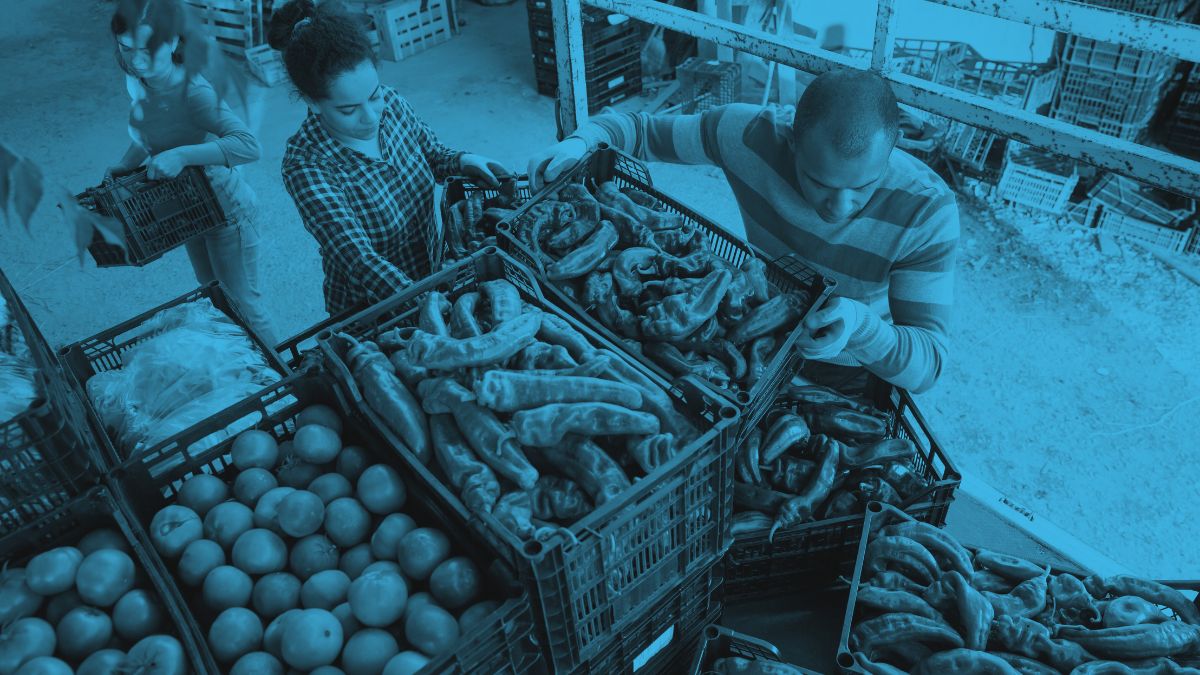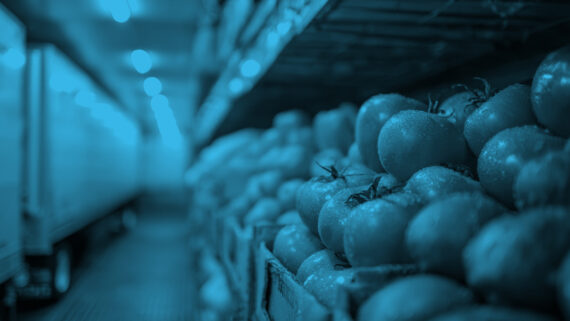
9 Tips for Produce Shippers
Growers spend months planting, tending, and harvesting a crop that has just a few days of peak condition. So, a truck that shows up late or isn’t the right temp is a deal breaker. Getting your produce through the shipping process is the final, critical step in protecting your profit…and your brand.
From pickup to final inspection, every mile matters. Let’s cover the top 9 tips to help you keep your product crisp, compliant and on time.
1. Select carriers with proven cold-chain performance
Reliable reefer carriers will have the data that shows they’re able to consistently maintain set temperatures from pickup to delivery. Reliable cold-chain documentation protects both quality and your reputation.
2. Calibrated, modern refrigeration units
Refrigerated equipment should be well-maintained and recently calibrated. A faulty reefer unit can ruin a load in hours. Carriers should provide maintenance records on request.
3. Real-time temperature monitoring and alerts
Look for carriers using remote sensors and live tracking so you – and your buyer – can see temps in real time. Early alerts allow for quick fixes if something goes wrong.
4. 24/7 communication and after-hours support
Produce doesn’t care if it’s midnight or Sunday afternoon. A mechanical issue, traffic delay, or customs holdup can turn a perfect load into compost fast. Before you book, confirm the carrier offers true 24/7 dispatch and emergency response, not just a voicemail that someone checks “first thing Monday.” Real after-hours coverage means live people who can reroute trucks, authorize repairs, and keep you updated in real time.
5. Insurance that covers produce specifically
Not all cargo insurance is equal. Confirm the carrier’s policy specifically covers perishable goods at full value, otherwise you could be left footing the bill.
6. Follow sanitary / regulatory rules
You can do everything else right, but contamination kills all the hard work. Clean trucks/trailers, sanitized equipment, trained staff, clean liners/containers, avoiding cross-contamination (e.g. between raw, uneaten food, non-food items). In the U.S., the FSMA rule on sanitary transportation requires carriers/shippers to follow practices to avoid contamination during transport.
7. Secure the right carriers and partners before peak season
Demand spikes, equipment (like reefers) gets scarce, and prices go up. If you wait until you need to ship, you may end up with sub-par carriers or capacity issues. Line up trusted partners ahead of time.
8. Transparent rate & accessorial policies
Hidden fees like detention, fuel surcharges, lift gate and after-hours delivery add up fast. Get clear, written terms before you book.
9. Team up with the right TMS partner
The right TMS partner gives you live visibility into truck locations, temperature readings, and carrier performance metrics, so you can spot problems before they turn into rejected loads. Look for platforms that integrate with your buyers’ systems, automate paperwork, and store data for FSMA audits.
Why These Matter
- Less waste, which is both good for business and the environment.
- Better customer satisfaction (looks, taste, shelf life).
- Regulatory compliance (important for liability, brand trust).
- Lower cost in lost product / rejected loads.
A transparent, well-supported TMS can cut time spent chasing updates and help you hold carriers accountable. If you’re ready to say R.I.P. to rotten shipping and find fresh, reliable delivery solutions, check out The Produce Shipping Experts at Dynamic Logistix.
About Dynamic Logistix
Dynamic Logistix is a third-party provider of produce shipping and freight solutions that combines a world-class technology platform with stellar personal service. By providing superior visibility, transparent processes, and comprehensive real-time reporting through our transportation management software, produce clients save time and money. For more information, please visit our website and check out our LinkedIn page to join our growing team.



